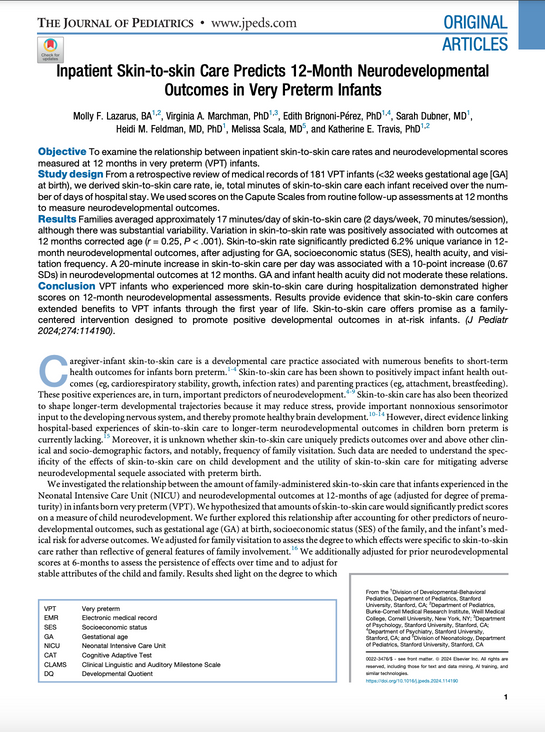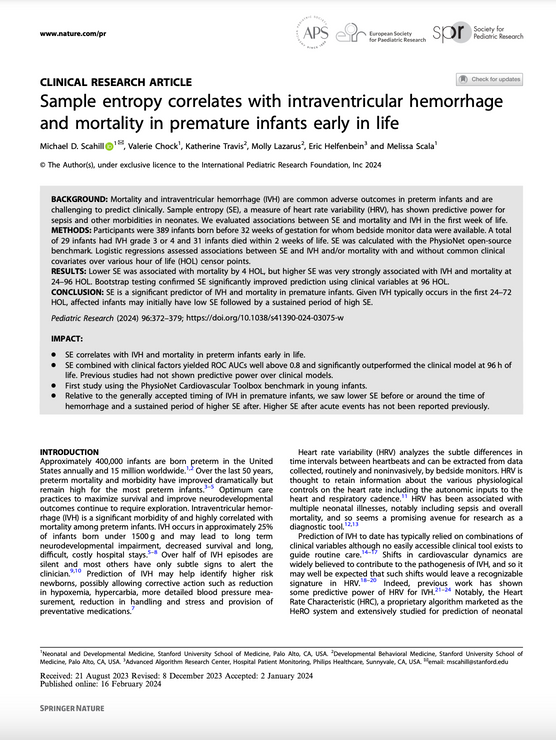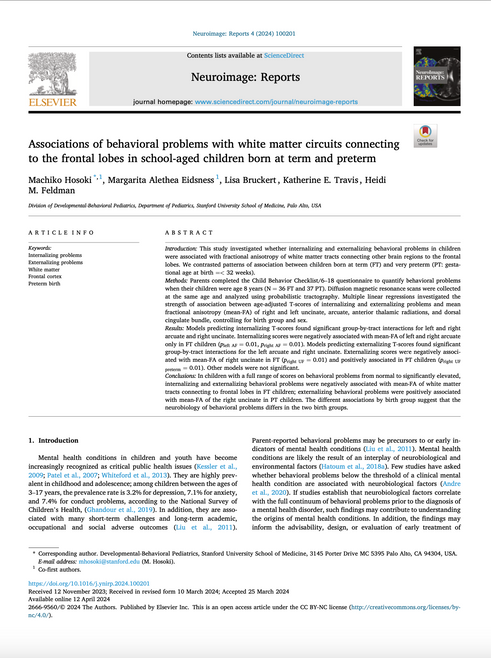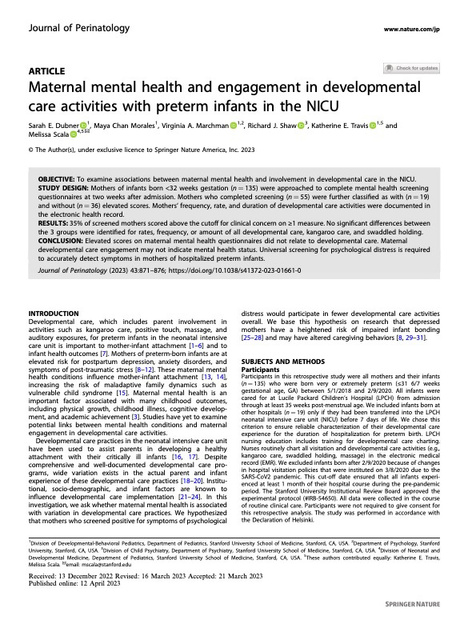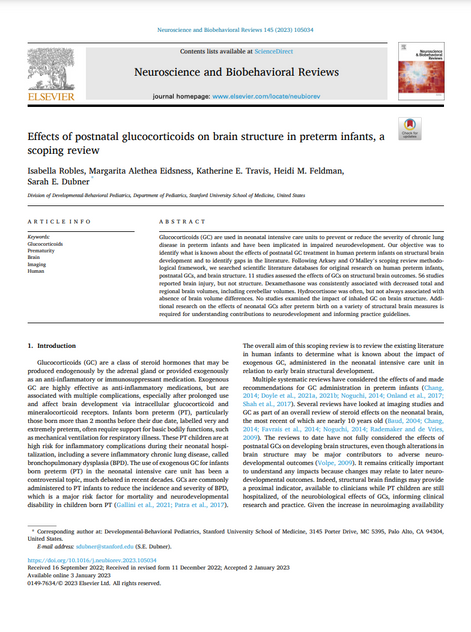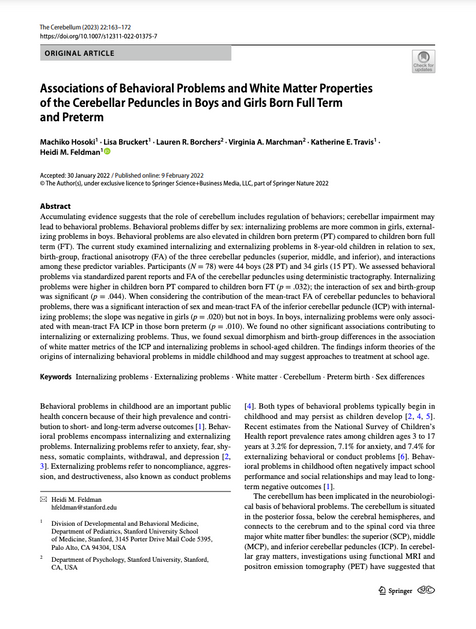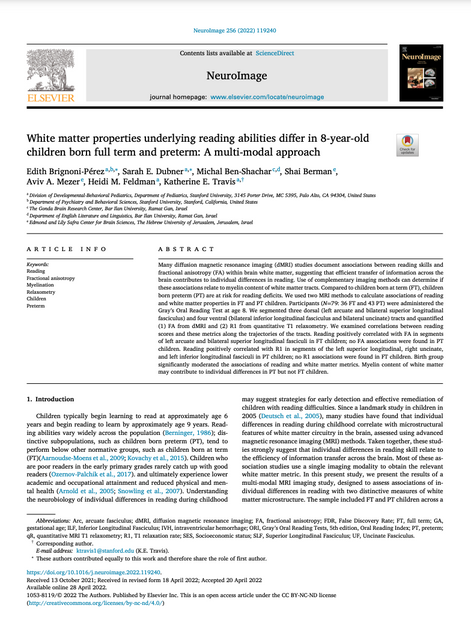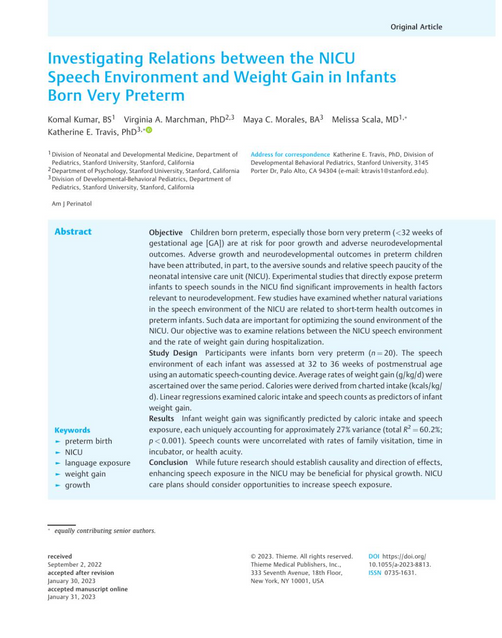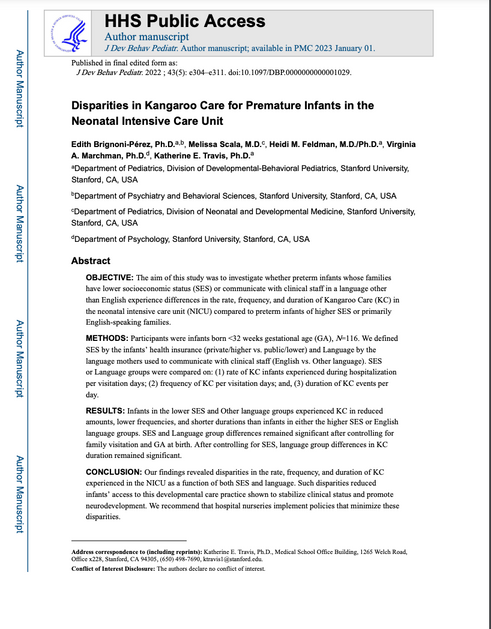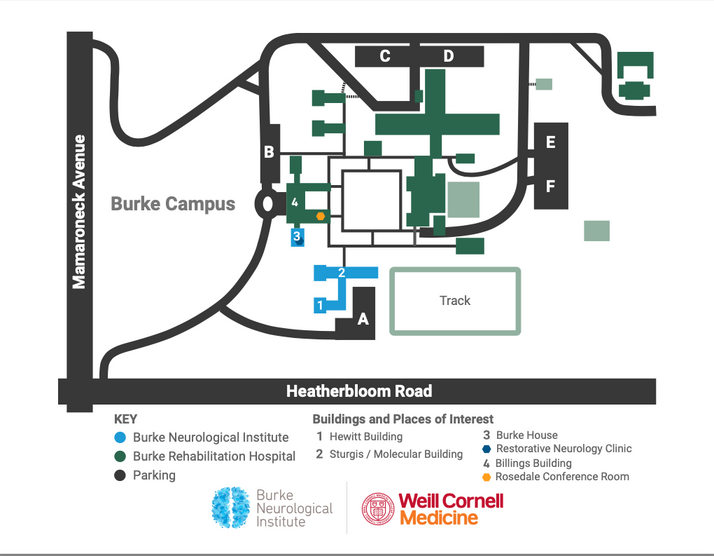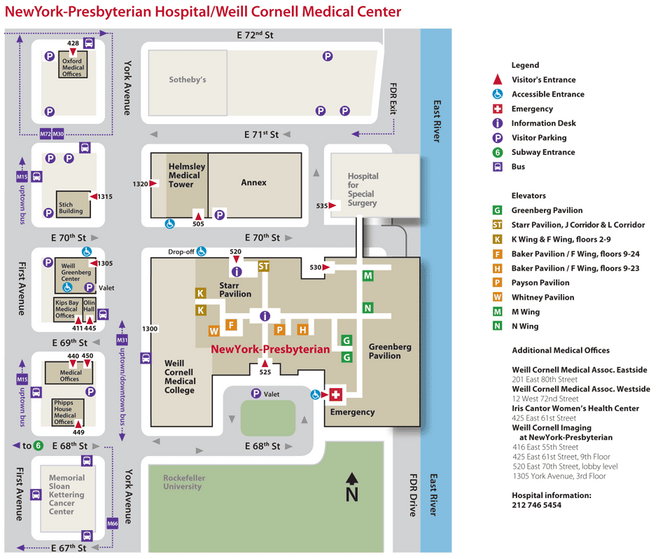
About Us
OUR MISSION
Our research aims to identify therapies to promote brain, language, and cognitive development in children at risk for learning disabilities. We use advanced structural MRI methods, such as diffusion and quantitative T1-mapping, to assess brain development in neonates, infants and children born preterm. Our current work is focused on understanding how sensory experiences and parenting behaviors in the neonatal intensive care unit and home environment contribute to shaping brain and neurocognitive development in children born preterm.
Dr. Travis received her undergraduate degree in Neuroscience from Colorado College in 2003 and her Ph.D. in Neuroscience from the University of California, San Diego in 2011. Before beginning her graduate studies, Dr. Travis worked as a research assistant at the National Institutes of Health in Bethesda, Maryland. She performed her postdoctoral training at Stanford University in translational and clinical pediatric neuroscience. In 2016, she was promoted to Instructor and was awarded a K99/R00 Pathway to Independence grant from the National Institutes of Health. In 2019, she joined the faculty at Stanford as an Assistant Professor in the Department of Pediatrics. In 2023, Dr. Travis was recruited to the faculty at Burke Neurological Institute and at Weill Cornell Medicine in New York.
Molly received her undergraduate degree from Scripps College in 2022. During her undergraduate studies, Molly worked as a research assistant at the AMH-CARE lab at Pomona and Claremont McKenna Colleges, developing an interest in neurological and physiological correlates of early childhood experiences. Molly joined Dr. Travis as a Clinical Research Coordinator at Stanford in the summer of 2022 and followed her to Burke in the fall of 2023. Molly hopes to pursue graduate studies in the near future.
Fargol graduated from Colorado College in 2024 with a bachelor's degree in psychology. Her research interests include developmental factors in attachment styles, language studies, mental disorders, and innovative treatments. In August 2024, she joined the Travis Lab at Burke as a clinical research coordinator. She is aiming to pursue a PhD in clinical psychology in the future.
Avery is a senior at Cornell University majoring in Biological Sciences. At school, she is a research assistant with the Behavioral Analysis of Beginning Years (B.A.B.Y.) Lab, where she supports studies on how interactions between caregivers and infants shape developmental change. Avery joined the Travis Lab as a research assistant in the summer of 2024 to get more involved in pediatric research. Upon graduation, she plans to work in a healthcare setting and later attend medical school.

Sasha is an undergraduate student working towards a bachelor’s degree in neuroscience at Lafayette College. She began working with the Travis lab as a research assistant in the summer of 2024.
Dr. Scala is a Clinical Associate Professor of Pediatrics in the department of Neonatal and Developmental Medicine at Stanford’s Lucile Packard Children’s Hospital. She received her medical education at Georgetown University School of Medicine in 1997.
Dr. Feldman is the devision chief and medical director for the Developmental Behavioral Pediatrics department at Stanford. She received her Ph.D. in developmental psychology from the University of PA and her medical education at the University of San Diego School of Medicine in 1979.
Dr. Marchman is a professor in the Psychology department at Stanford University. She received her Ph.D. in developmental psychology from the University of California Berkeley in 1989.
Current Projects
New burke project
In Prep
We are currently developing projects at Burke and Weill Cornell. We hope to build a large neuroimaging biorepository paralleling our Stanford REDCap database as well as launching new intervention studies focusing on increasing language and kangaroo care exposure in the NICU.
Listening to Mom in the NICU
Ongoing
Children born preterm are at-risk for developmental language delays. Language problems in preterm children are thought to be related to neurobiological factors, including injuries to white matter structures of the brain and environmental factors, including decreased exposure to maternal speech in the hospital nursery. To help minimize these problems, the Listening to Mom study aims to demonstrate that a language intervention, which involves playing recordings of a mother’s voice to the infant while s/he is in the hospital nursery (ie., neonatal intensive care unit), will be effective for promoting healthy brain and language development in babies born preterm.
Brain Development in Infants Born Preterm
Ongoing
All very preterm infants in Stanford’s NICU undergo routine clinical MRIs before hospital discharge and qualify for high-risk infant follow-up visits at 6, 12, and 18 months of age. We have curated a large REDCap database including clinical, demographic, developmental care, neurobiological, and neurodevelopmental data collected retrospectively from the electronic medical record for over 700 very preterm babies.
Preludes study
Ongoing
The purpose of this study is to explore how the social environment and characteristics of the brain both impact the development of language in children born preterm. The social environment includes the amount of language the child hears at home and the ways that children and families interact together. The characteristics of the brain are measured using MRI scans.
Featured Publications
Lab Culture and Values
Team Science
We believe that science is done better as a team. As a member of our lab, you'll step into an environment fueled by curiosity, creativity, and a shared commitment to making a tangible difference in the lives of children and their families. Here at the Travis lab, we nurture a work culture that values inclusivity, collaboration, and respect, where every team member's unique perspective contributes to our collective success.
Educational and Professional Development
A major focus of the Travis Lab is to advance the educational and professional development of all team members. We make sure that hard work and dedication is rewarded with opportunities to initiate new projects, co-author manuscripts and attend conferences. We take an inclusive approach to authorship to support the advancement of team members at all levels. We believe that you will do your best science when you feel supported in meeting your educational and professional objectives. Dr. Travis also prides herself on being responsive and communicative with all team members.
Working Environment
We take a blended approach to our work. We work in-person and hybrid-remote. We come together to write papers, to practice talks, and to troubleshoot research issues. We work evenings and weekends when necessary to meet the needs of study participants. We expect that you have interests beyond work and engage in activities outside the lab. We love kids and recognize the importance of family. We are sensitive to the ever-changing dynamics of childcare in this country. Above all, we think the lab should be a place where you enjoy coming to work and a place where you feel supported.
Open positions
Please check back regularly as we plan to begin hiring new team members at all levels. We encourage anyone interested in joining the team to contact Dr. Travis directly.
Lab Photo Gallary
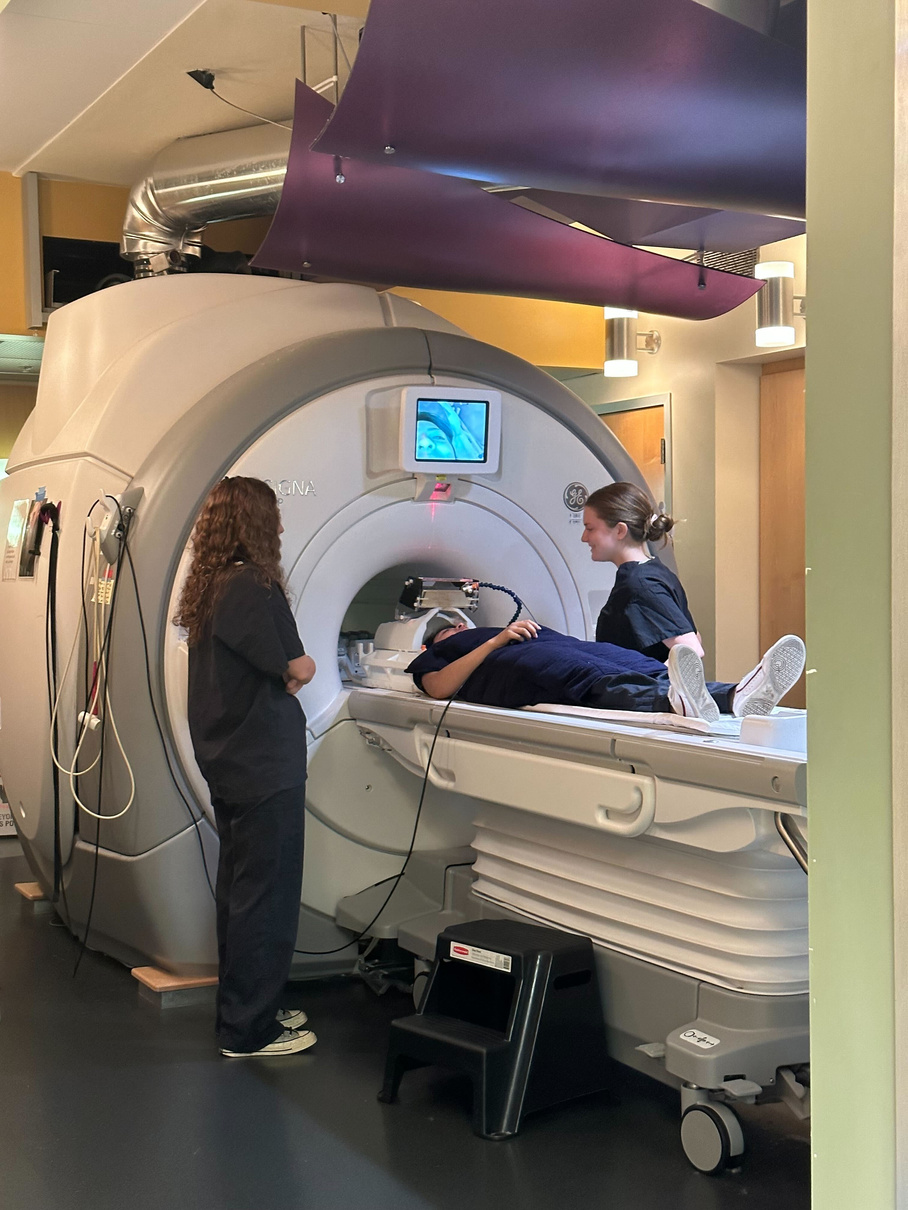
Summer Research
2023
Teaching our undergraduate Research Assistants Rose and Tiffany how to use the MRI machine!
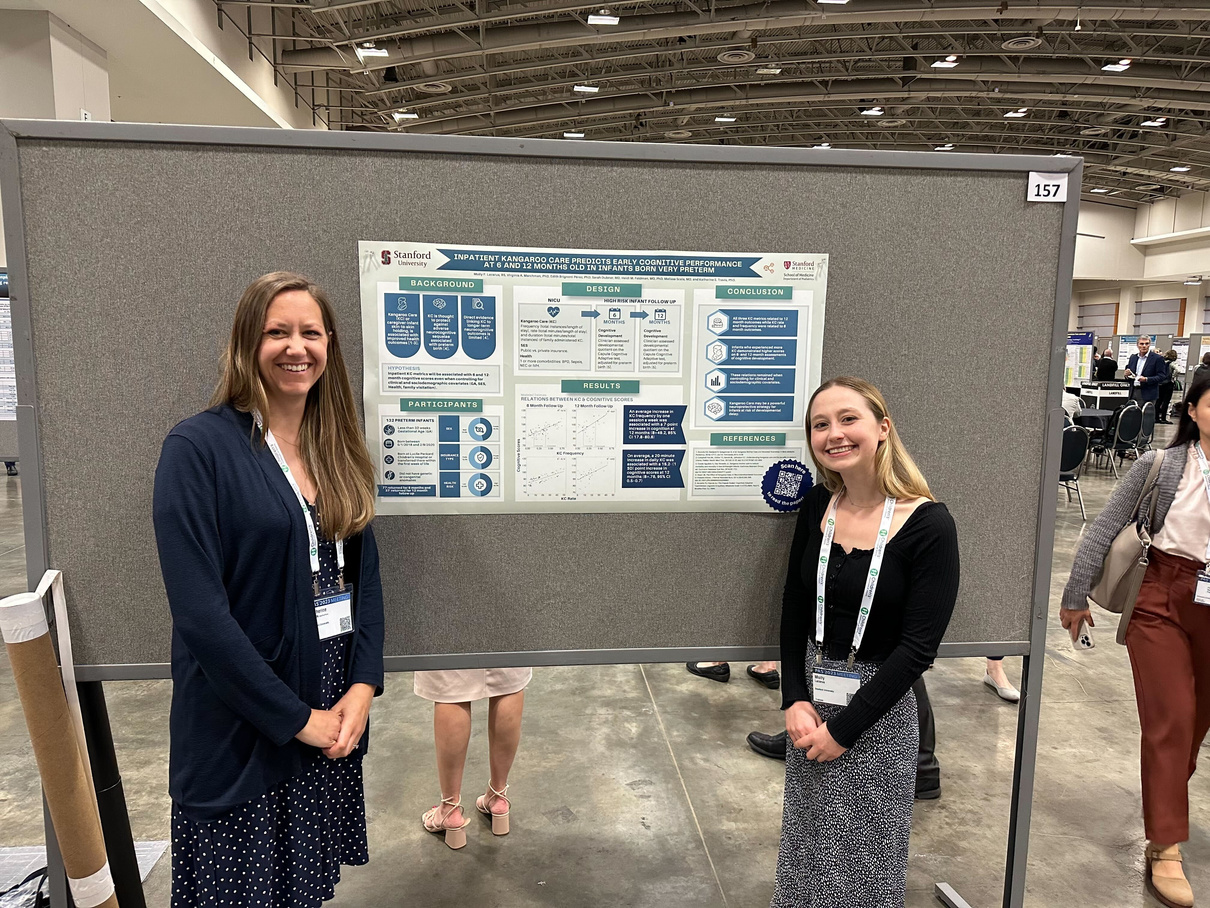
PAS 2023
2023
We had so much fun presenting our research at the Pediatric Academic Society’s annual meeting in May 2023!
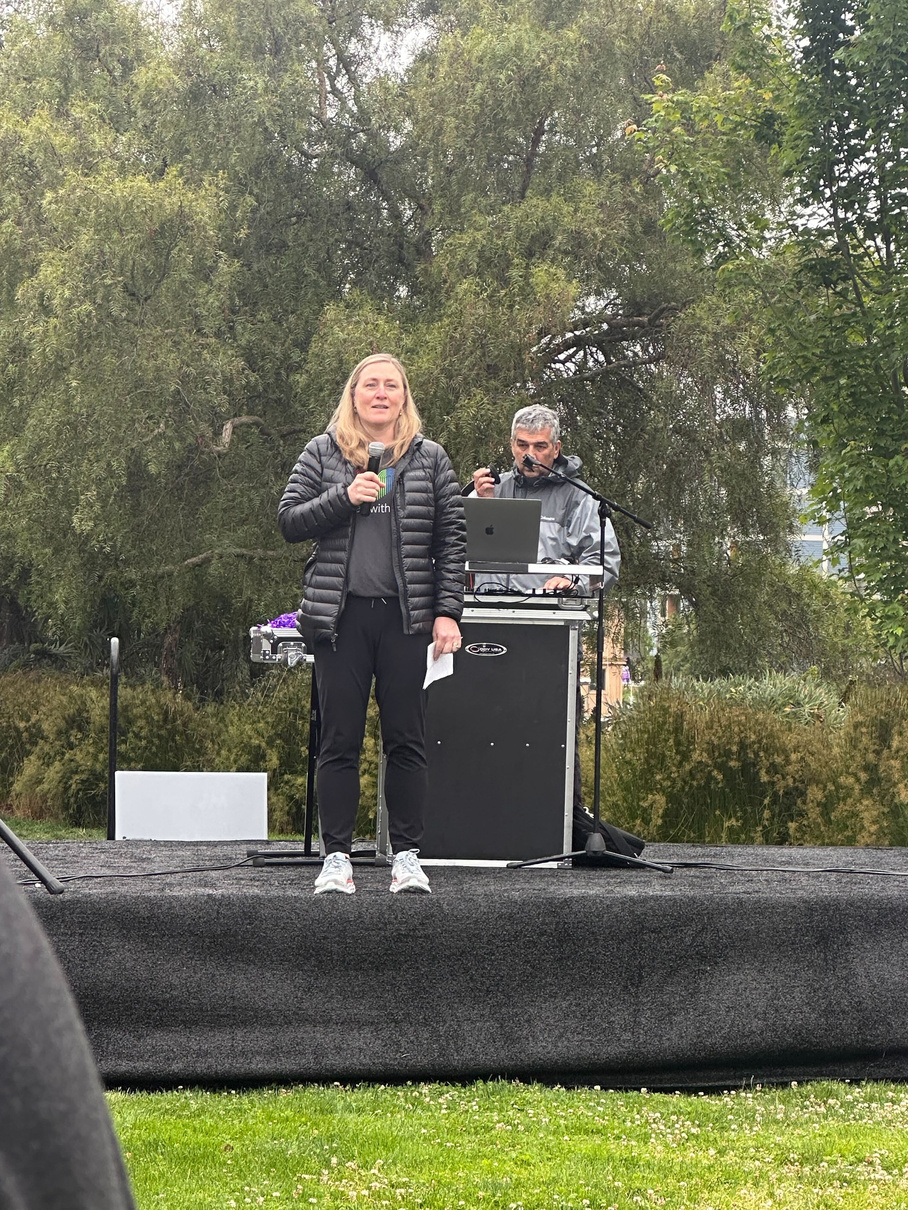
March of Dimes
2023
Our favorite neonatologist Melissa Scala giving the keynote address at the 2023 March for Babies!
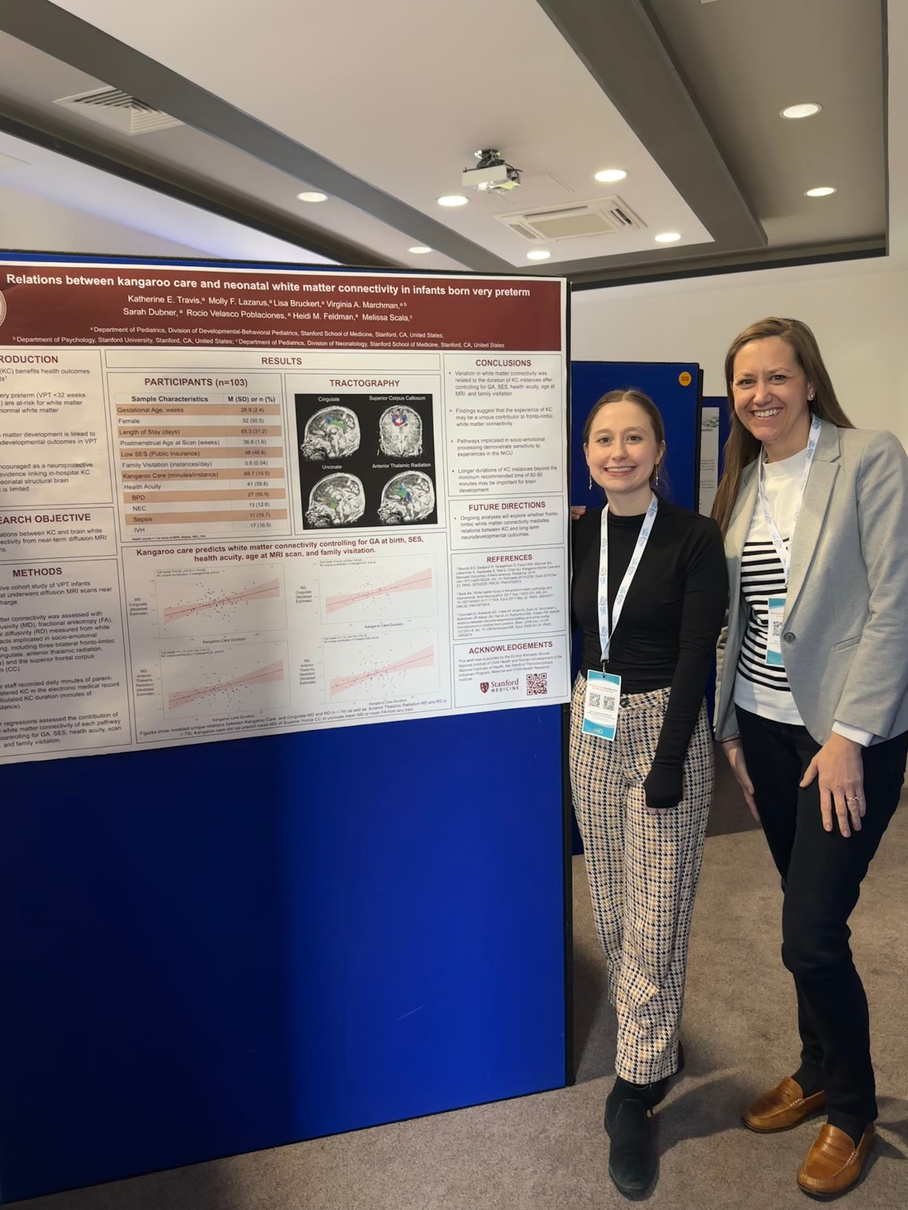
INBBC
2024
We flew all the way to Cork Ireland to present a poster at the 15th annual International Newborn Brain Conference!
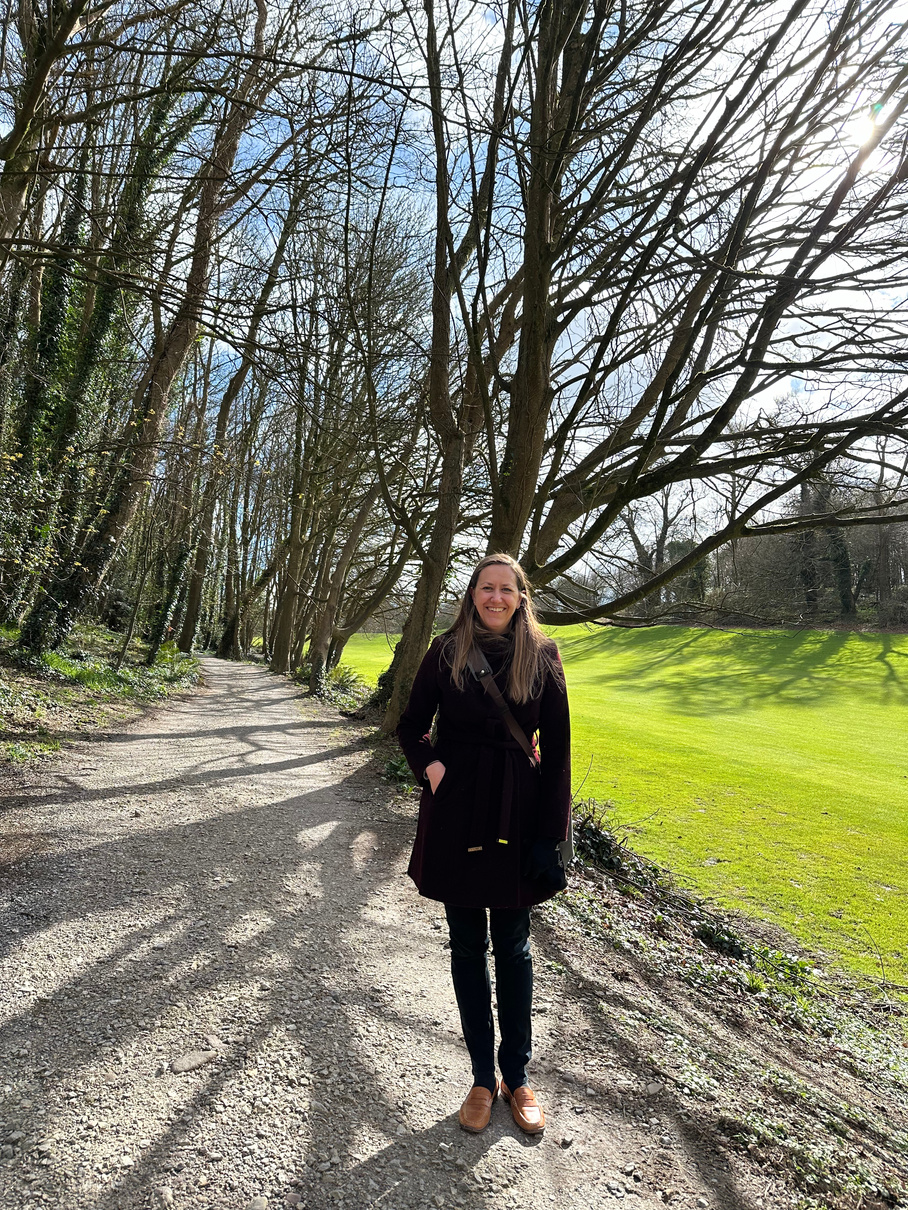
Exploring Ireland
2024
We had some fun exploring while we were in Cork! Here is Katie experiencing the beautiful nature!
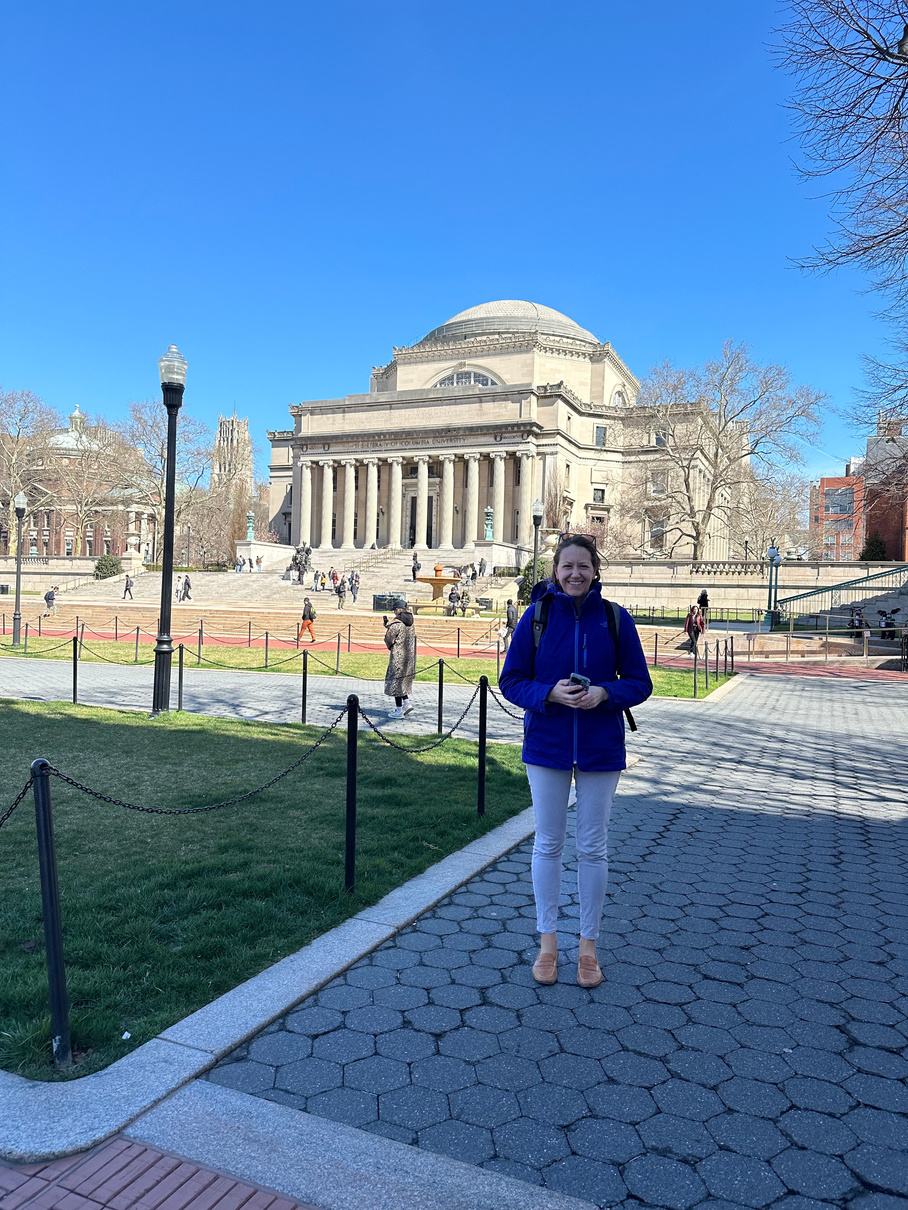
Visiting Columbia
2024
Katie preparing to give a talk at Dr. Kimberly Noble’s lab at Columbia!
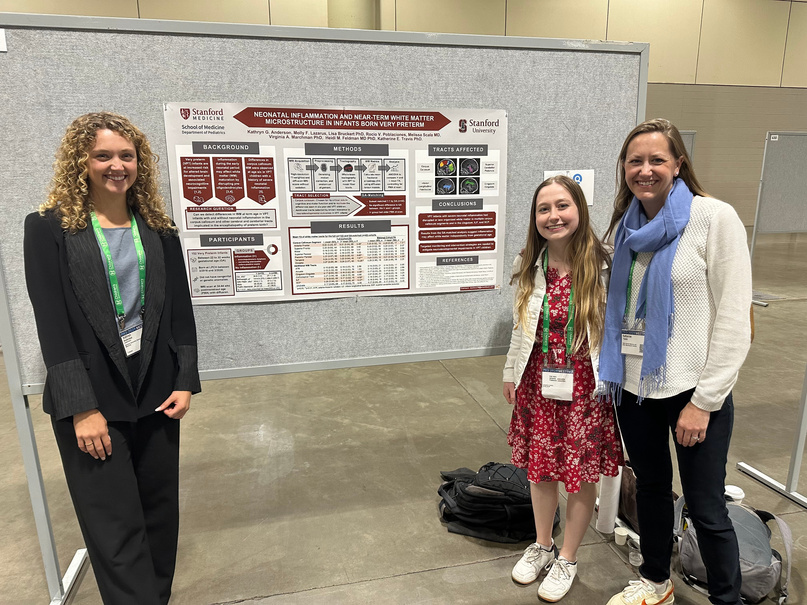
PAS 2024
2024
Posing with our favorite Med Student, Kat at our PAS poster!
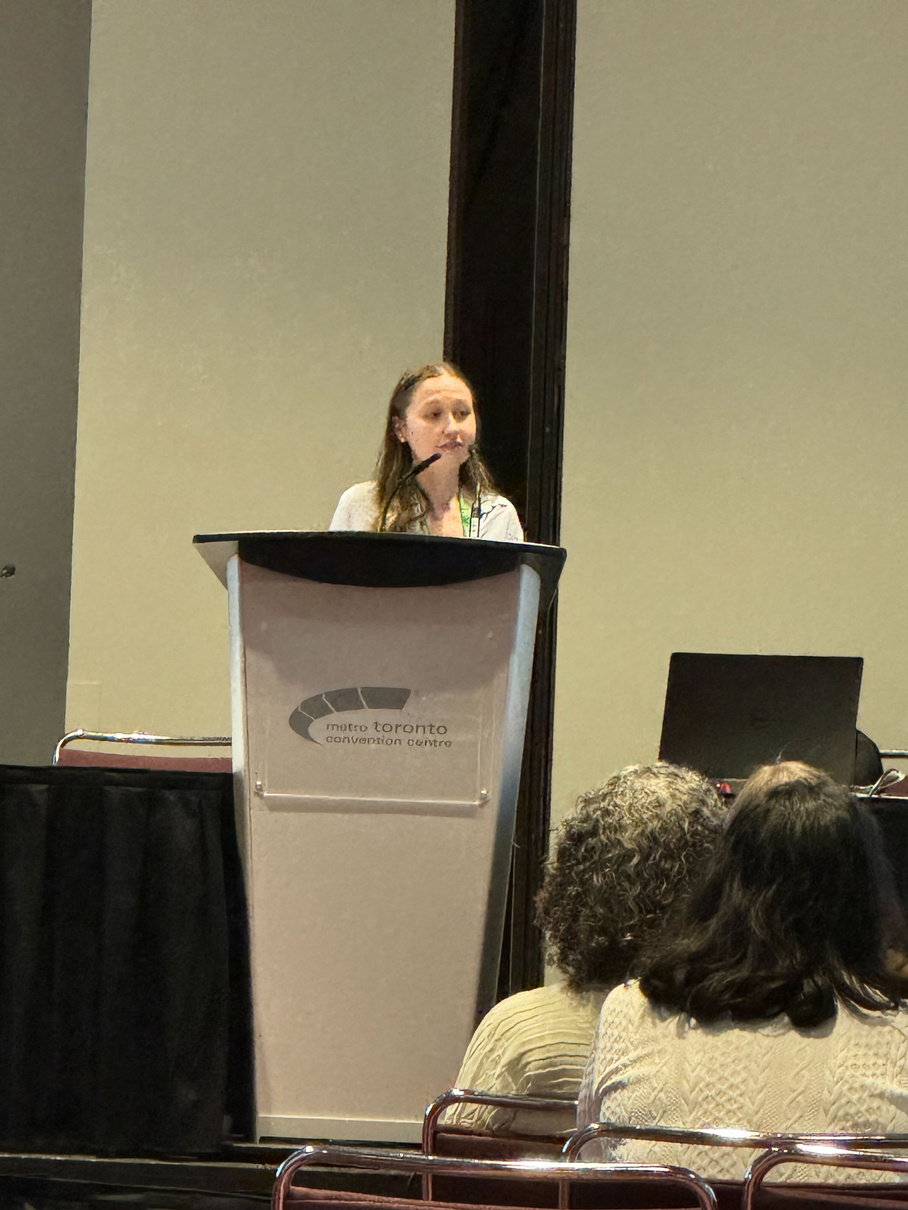
PAS 2024
2024
Molly presenting our research at PAS 2024 in Toronto Canada.
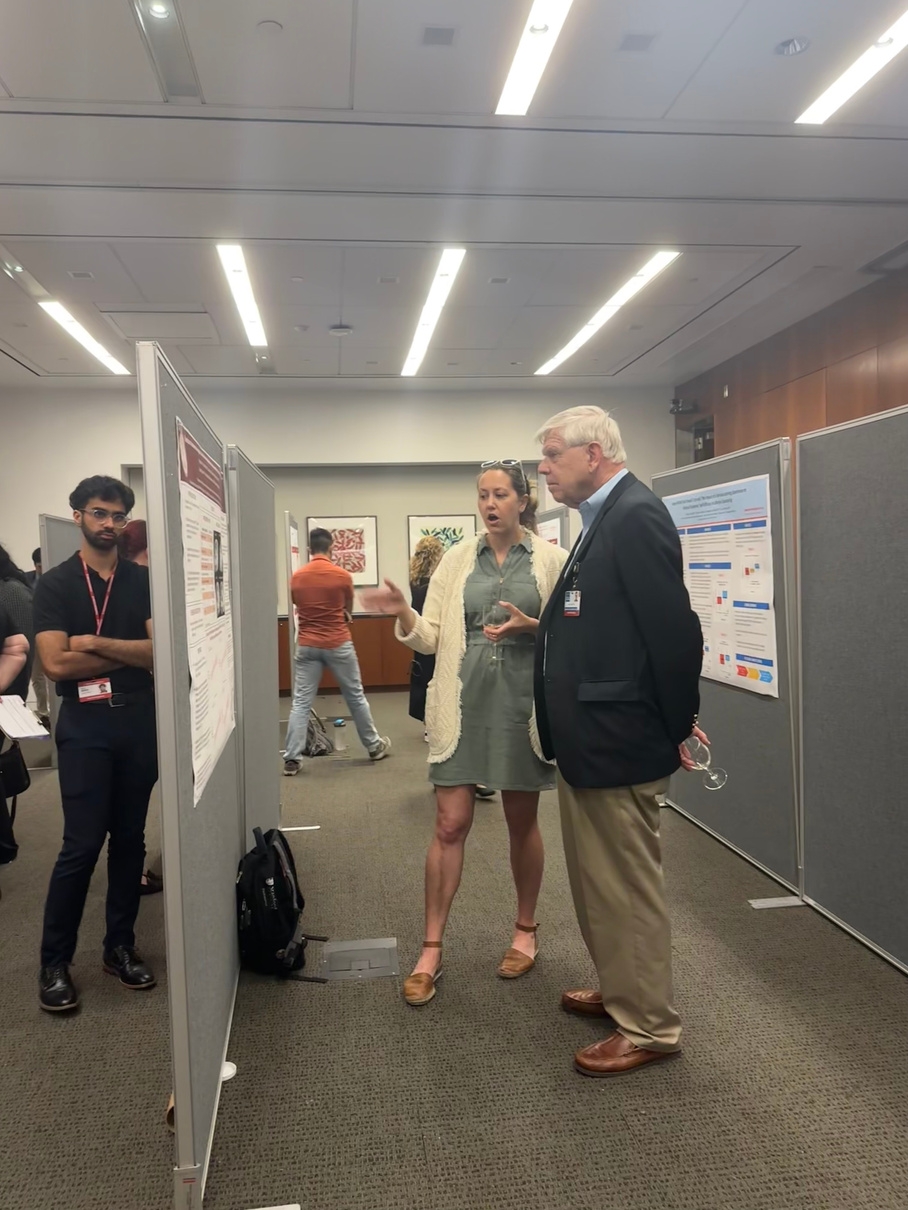
Weill Cornell Research Retreat
2024
Katie sharing our research with our new Cornell colleagues!
Contact Us


